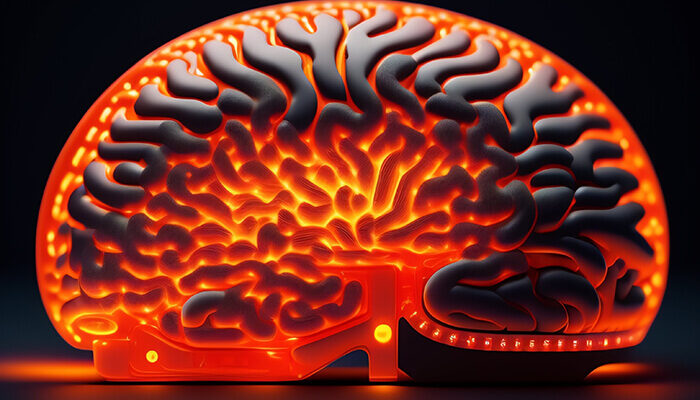5 Common Habits That Are Slowly Damaging Your Brain
Mental health is vital to our overall wellbeing, and our brain is the most important organ that controls it. However, many of us engage in habits that can harm our brain in the long run. These habits may appear harmless at first, but they can have serious consequences over time. In this blog post, we’ll delve into 5 common habits that are slowly damaging your brain and how you can avoid them to promote better mental health.
-
Lack of Sleep:
Sleep is essential for our brain to function properly. When we don’t get enough sleep, our brain cells can’t repair themselves and can lead to memory problems, mood swings and decreased productivity. Chronic lack of sleep has also been linked to an increased risk of developing Alzheimer’s disease.
-
Overeating Junk Food:
Eating junk food on a regular basis can have a negative impact on our brain health. Junk food is usually high in sugar, salt and saturated fats, which can lead to inflammation and oxidative stress in the brain. This can lead to memory problems, depression and anxiety.
-
Chronic Stress:
Stress is a normal part of life, but chronic stress can be detrimental to our brain health. Chronic stress can lead to the release of cortisol, which can damage the hippocampus, the part of the brain responsible for memory and learning. It can also lead to depression, anxiety and other mental health issues.
-
Smoking:
Smoking is not only bad for our lungs, but it’s also bad for our brain. Nicotine in cigarettes can lead to a decrease in the number of nicotine receptors in the brain, which can lead to cognitive decline. Smoking has also been linked to an increased risk of developing dementia and Alzheimer’s disease.
-
Lack of Exercise:
Exercise is not only good for our physical health, but it’s also good for our brain health. Exercise increases blood flow and oxygen to the brain, which can help improve memory and cognitive function. Lack of exercise can lead to a decrease in brain volume and an increased risk of developing dementia.
Conclusion: In conclusion, our brain is an important organ that needs to be taken care of. Habits such as lack of sleep, overeating junk food, chronic stress, smoking and lack of exercise can have a negative impact on our brain health. By making small changes to our daily habits, we can improve our brain health and overall well-being. So, let’s take care of our brain and make it a priority!
Related Links:
- Harvard Health Publishing: “12 ways to keep your brain young”: This article offers practical tips to keep your brain healthy and protect it from age-related decline. https://www.health.harvard.edu/mind-and-mood/12-ways-to-keep-your-brain-young
- National Institute of Mental Health: “Brain Basics: Know Your Brain”: This resource provides an overview of the brain’s structure and function, as well as information on various brain disorders and how they affect mental health. https://www.nimh.nih.gov/health/educational-resources/brain-basics.shtml
- Psychology Today: “10 Habits of Highly Effective Brains”: This article discusses habits that can promote brain health and improve cognitive function. https://www.psychologytoday.com/us/blog/brain-babble/201301/10-habits-highly-effective-brains
- Alzheimer’s Association: “10 Ways to Love Your Brain”: This page offers tips on lifestyle choices that can reduce the risk of cognitive decline and promote brain health. https://www.alz.org/brain-health/10-ways-to-love-your-brain
- Centers for Disease Control and Prevention: “Sleep and Sleep Disorders”: This resource explains the importance of sleep for brain function and offers tips for improving sleep habits. https://www.cdc.gov/sleep/index.html























